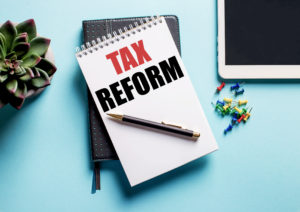As the 2021/2022 fiscal year ended on June 30, many states implemented sales tax legislation reforms. In this blog article, we share a few standout updates you should know about.
Washington State Department of Revenue & NFT Sales Tax
NFTs, or non-fungible tokens, have been around since 2014, but started gaining momentum in 2021 and have only risen in popularity since. As you can imagine, this has created some sales tax confusion.
Washington state is one of the few states to tackle the taxiblity of NFTs, and on July 1, 2022, the Washington State Department of Revenue published an interim statement on how sales tax applies to NFTs. The statement is “intended to provide general information related to the taxability of certain transactions involving NFTs and does not intend to address any exemptions, exclusions, deductions, credits or other incentives that may apply.” The interim statement functionally defines NFTs as a digital code.
Maryland Clarifies Sales Tax On Digital Products
The latest changes from Senate Bill 723 and House Bill 791 came into effect on July 1, 2022. The bills are a clarification of the state’s tax on digital products and the third time that the digital product legislation has been fine-tuned.
The synopsis shared by the Maryland General Assembly states the purpose of the bill is to, “Alter the definition of digital product for purposes of the application of the sales and use tax to exclude certain products where the purchaser has a certain property interest and certain types of computer software.”
As of July 1, SB 723 excludes the following from the list of taxable digital products:
- Any product that has electrical, digital, magnetic, wireless, optical, electromagnetic or similar capabilities where the purchaser holds a copyright or other intellectual property interest in the product if the purchaser uses the product only for commercial purposes, which includes marketing activities.
- Computer software or software-as-a-service purchased or licensed solely for commercial purposes in an enterprise computer system, which includes operating programs or application software for the exclusive use of the enterprise software system that is housed or maintained by the purchaser or on a cloud server, whether hosted by the purchaser, the software vendor or a third party.
Illinois Begins Year-Long Grocery Sales Tax Holiday
Starting at the beginning of July, Illinois suspended its 1% grocery sales tax for one year. This suspension doesn’t include other items aside from food purchased at the store – medicine and hygiene products specifically will still be taxed at the 1% rate. Ready-made food, soft drinks, candy and alcohol will continue to be taxed at the state sales tax rate of 6.25% plus any local taxes if applicable.
Still Have Sales Tax Legislation Questions?
As you can see, sales tax legislation updates frequently and compliance is important for businesses to avoid an audit. Working with an experienced team of state tax consultants like Miles Consulting Group is a great way to stay up to date on multistate tax legislation. If you have questions about your state sales tax obligations, please contact us today. We’re happy to clarify any multistate tax issues you’re trying to navigate.




















